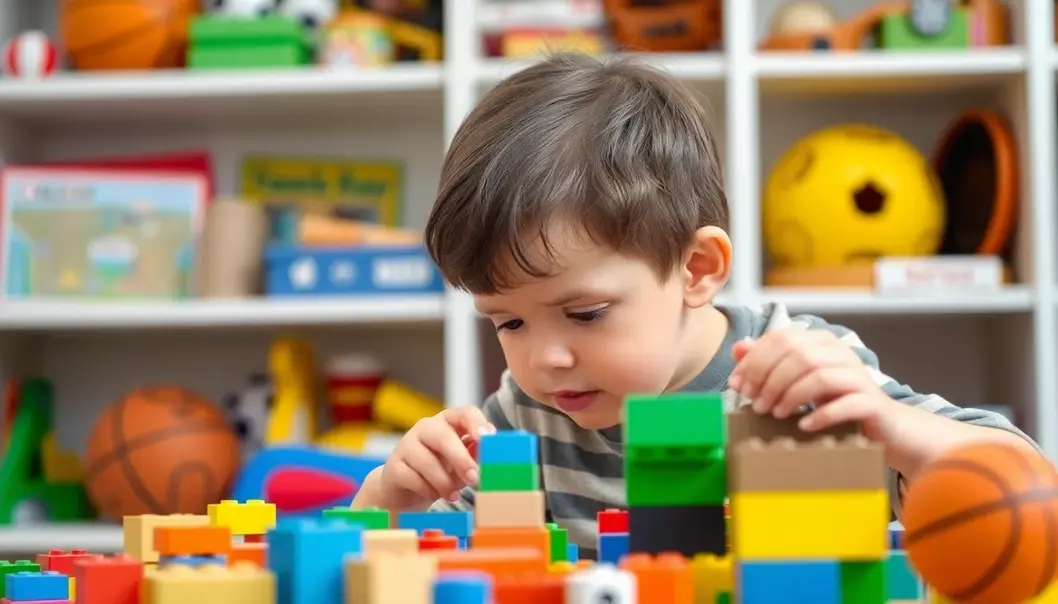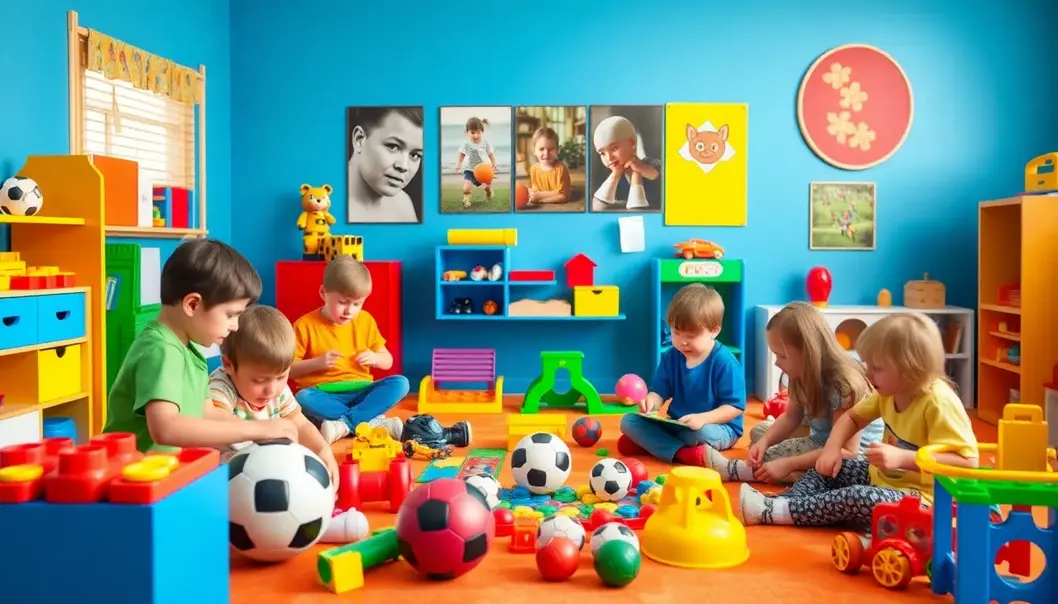Toys, often seen as simple objects of amusement, hold a transformative power in shaping young minds. For sports enthusiasts, this gateway to early learning is akin to the fundamental training that athletes undergo from the onset of their careers. Just as a basketball teaches dribbling and teamwork, toys introduce children to new concepts, problem-solving, and creativity. They plant the seeds of strategic thinking and healthy competition from a tender age. This article dives into how toys have this unnoticed but profound impact on learning during childhood, drawing parallels to the driven world of sports.
Playing the Game: Toys as Training Tools

Picture a child in the midst of play, whether stacking blocks, assembling a puzzle, or pretending to cook in a toy kitchen. Each of these activities serves as more than mere entertainment; they are the original training grounds for skills that children carry into adulthood. Toys, much like sports equipment for athletes, are fundamental in preparing young minds for life’s challenges.
Through play, children engage in experiences that refine motor skills. For instance, manipulating building blocks enhances fine motor skills and hand-eye coordination, reminiscent of how a tennis player must develop precise control and timing. These foundational skills are essential as they extend into more complex activities, just as an athlete’s early drills evolve into sophisticated gameplay techniques.
Moreover, toys instill discipline and resilience. A child building a complex model might face setbacks akin to a golfer mastering a swing. Both scenarios require persistence and problem-solving to achieve success. Children learn that perseverance in play can lead to the satisfaction of reaching a goal, a lesson that mirrors an athlete’s journey of navigating defeats and honing skills to improve performance.
Teamwork is another crucial lesson from play. When children engage in collaborative play, using toys that require multiple participants, they cultivate skills in communication and cooperation. This process mirrors the dynamics on a sports team, where players must work together, strategize, and often sacrifice individual glory for collective success. Board games designed for group play serve as excellent platforms for teaching negotiation and empathy, laying a foundation for social interaction.
Decision-making abilities also evolve through play. Consider a child deciding how to prioritize pieces in a strategy game. This mirrors the decision-making process in sports, where an athlete assesses the field to make split-second decisions. Through toys that encourage choices and strategy, children develop cognitive abilities that are essential beyond the realm of play.
The parallels between the playground and the sports field are clear: both spaces are arenas for growth. As children play, they encounter situations requiring discipline, resilience, and teamwork, paralleling what young athletes experience in sporting endeavors. This reinforces how integral toys are not just to play but as tools that prepare children for future life challenges.
Strategic Plays: Toys and Cognitive Growth

The early years of childhood can be likened to the formative sessions of a sports team, where young athletes are molded through strategic playbooks that lay the groundwork for later success. In a child’s life, toys are the critical tools that guide their cognitive play strategies, much like a coach’s playbook does for athletes. Puzzles, board games, and role-play toys are not merely sources of entertainment; they build frameworks for cognitive growth and strategic thinking.
Puzzles serve as quintessential cognitive coaches. Each piece is part of a larger picture, requiring children to use spatial reasoning and visualization to complete a scene. The process of fitting pieces together is itself an exercise in problem-solving. Children learn to anticipate which pieces go together, predicting and testing different configurations. This trial-and-error method is comparable to a sports team analyzing and adapting strategies in real-time during a match. Simplistically, each puzzle completed is a victory, reinforcing perseverance and the ability to overcome challenges.
When we consider board games, the strategic depth they introduce extends far beyond rolling dice or moving tokens. These games cultivate planning and forward-thinking as players must anticipate opponents’ moves while formulating their game plan. Games that require resource management or negotiation hone a child’s ability to strategize efficiently. Much like a point guard in basketball analyzing the court for opportunities, children assess their board game position, decide on tactics, and adjust strategies as needed. This engagement sharply enhances critical thinking and decision-making, turning children into keen strategists in life.
Role-play toys and activities, embodying the guise of doctors or astronauts, immerse children in imaginative scenarios that require quick thinking and adaptability. Here, the focus shifts from direct strategy to the nuanced art of perspective-taking and empathy—the softer skills of a mature strategist. In role-playing, children decipher social cues and learn the importance of cooperation, comparable to players on a team who must seamlessly integrate individual roles to triumph collectively. This arena of play aligns with the fast-paced decisions made in team sports, teaching children to process environments and outcomes dynamically.
Within the sphere of toys, certain innovations encapsulate the essence of cognitive training for young minds. Consider construction sets that allow for endless creation, requiring both planning and execution in building complex structures. Here, the learning is in the doing, much like muscle memory built during athletic training. As children construct and deconstruct, they engage in logical analysis and creativity, mirroring the tactical exercises athletes undergo in practice sessions.
Through these diverse play modalities, toys act as powerful facilitators of cognitive prowess, nurturing future leaders accustomed to navigating competitive environments with poise. As in sports, the strategic development toys offer sets foundational skills for young minds, cultivating individuals ready to tackle the complexities and challenges of the world with a clear-headed strategic mindset.
Final words
In the dynamic world of childhood learning, toys act as pivotal instruments in stimulating mind growth akin to sports tools for athletes. They nurture latent skills, forge cognitive development, and ignite creativity. By understanding toys’ educational value, we can better support children’s holistic growth. Much like athletes experience a journey of exploration and refinement through sports, children embark on a similar path with toys, fostering skills that transport them into adulthood equipped with resilience and adaptability.
Unlock the potential of educational toys in your child’s growth. Explore our curated selection today!
Learn more: https://www.toyland.com/educational-toys
About us
ToyLand offers a curated selection of educational toys designed to spark learning and development in children, integrating fun with cognitive growth. Our collection ensures that playtime is both enjoyable and enriching, drawing inspiration from the parallels between play and sports training.

